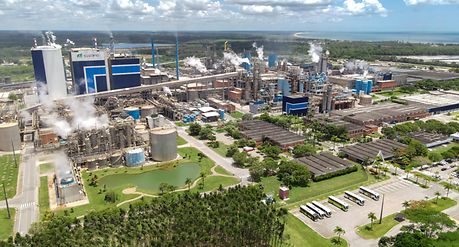Lime kiln operating modes and definition of control variables
The kiln area is responsible for recovering lime used in the causticizing process. “A precise recovery is especially important to avoid the necessity of adding lime to the system,” explains Rudson Venturim, OPP Analyst at Sindus ANDRITZ. “Of course, some lime will always be needed to keep the system performing optimally. And the lime used must be high-quality with a low carbonate residual so that it does not compromise the causticizing process.”
The goal of the work, therefore, was to study the characteristics of the kiln and optimize controls so that the equipment could produce the same amount and quality of lime while consuming less gas. Suzano’s main kiln controls have been completely manual, which significantly slowed down the operation. This resulted in higher NG consumption costs as NG was used to heat the lime mud inside the kiln. (Not all pulp mills use gas. The advanced controls used in this project would also apply to mills using oil for heating).
The main control variables impacting the process were oxygen, furnace rotation, production control, and gas flow, which together make up the kiln’s temperature profile. The team automated these controls to optimize the kiln operation.














